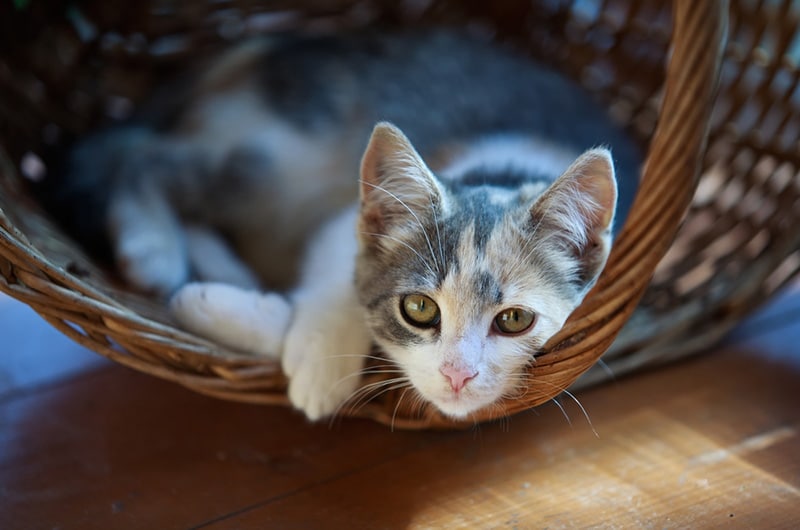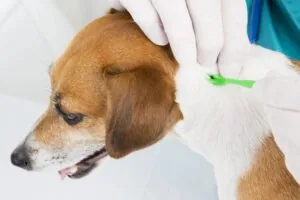Tips to Help Keep Your Cat Healthy

Cats are extremely agile and active pets known for their curiosity. For this reason, many humans find they are easily humored by the feline species’ innate sense of independence, and enjoy spending time with these furry little beholders of big personalities. If you’re a cat owner, particularly a new cat owner, it’s natural to wonder how long your feline friend will be with you. Just how long does the average cat live? With advances in medicine and nutrition, cats are living longer than ever before. It’s not unusual today to see a cat live well into its 20s.
Regular Veterinary Visits
One of the most important aspects of health maintenance for your cat is preventative medicine – and prevention begins the moment that a cat is born. Staying up-to-date on regular vaccinations, anti-parasitic medications, and other preventative treatments can severely reduce the risk of your beloved pet developing illnesses and diseases. Since regulations regarding what medicines are required of domesticated animals often change, consultation with your veterinarian on an annual basis is necessary to help you ensure that you stay in compliance with the policy. All cats require regular veterinary visits, not only for dental examinations but for a thorough examination of your cat from nose to tail. Cats are masters of disguise when it comes to disease. Even the most observant cat owner may be unable to spot the early signs of illness. However, your veterinarian is trained to look for these signs. Your veterinarian also has the advantage of being able to perform blood, urine, fecal, and other testing that you cannot do at home for your cat. Help your cat live longer and schedule annual veterinary checkups.
Spaying/Neutering (if You Haven’t Already)
Spaying and neutering increase the lifespan of cats. An added benefit for cats that are spayed or neutered is a lower tendency for developing annoying or even intolerable behavioral issues such as marking or spraying.
Oral Hygiene
Oral care is frequently overlooked, particularly for cats. However, it is extremely important to look after your cat’s teeth and mouth. The majority of cats over the age of three already have some degree of dental disease. Dental disease can be painful and may even prevent your cat from eating normally. Proper oral care involves both home care as well as regular veterinary care. It’s likely your veterinarian will need to anesthetize your cat in order to do a thorough oral examination and properly clean your cat’s teeth. Cats can have dental problems that occur under the gum line and cause pain, which may go unnoticed as cats tend to hide the fact that they are in pain. Without anesthesia, it is impossible for your veterinarian to find these problems and treat them to relieve any dental pain your cat may be experiencing. Your veterinarian can also help you establish a home care routine for your cat. This may include brushing the teeth, oral wipes, oral rinses, and other options.
Quality Cat Food
Perhaps the most important part of a pet’s preventative care routine is the maintenance of a healthy, balanced diet. A cat should have a daily diet of healthy cat food. The ideal cat food brand has a high level of animal proteins, and is chock-full of vitamins and minerals that promote your cat’s health. Look for trusted brands that, unlike generic brands, have certification stamps of their safety, and use meats, carbohydrates, and other ingredients that are natural and of high quality. Access to a fresh bowl of clean water is also a key part of maintaining bodily health for a cat. The diet should also be appropriate for your cat’s life stage and lifestyle. For instance, a kitten should be consuming a diet that supports growth while an older cat may require fewer calories or even have health issues that require dietary restrictions or additions. The nutritional needs of each cat are different. In addition, it is important to avoid overfeeding your cat. Your veterinarian can help you choose a diet appropriate for your individual cat based on his age, reproductive status (i.e., neutered or spayed), health, and other factors.
Water Consumption is Important, Too!
You may not have thought of this before, but many cats do not consume adequate amounts of water without encouragement. Encourage water consumption for your cat through the use of canned foods (which have a higher moisture content than kibble), a cat water fountain, dripping faucets, or by adding water to the dry cat food.
Indoor Versus Outdoor Cats
It’s difficult to discuss average lifespan for a pet cat without first discussing the differences between a pet cat that lives indoors and a cat that lives or spends a great deal of time outdoors unsupervised. For these cats, the lifespan can be much shorter. An outdoor life exposes your cat to a number of dangers that a cat living indoors simply doesn’t face. These risks include infectious diseases, poisons, exposure to the elements, and injuries from vehicles, dogs, wild animals, or even people. Cats living outdoors are also prey to some of the wild animals that now live even in our more urban communities.
Exercise
Keeping your cat lean and fit is another contributing factor to giving your cat a long and healthy life. Overweight cats are prone to a number of diseases, including diabetes, heart disease, skin disease, respiratory disease, and more. It is very important for cats to have access to toys and enough space for adequate play each day. Surely, stereotypes tell us that cats are fat, lazy, and lounge around all day – and veterinarians agree that it is healthy for cats to have relaxation time as well. However, play can help build the strength of your pet’s muscles, and staying active can prevent troubles with your cat’s joints and ligaments over time. It is far easier for active cats to maintain a healthy weight through engagement in exercise than simply through calorie restriction.
Did you know that over 54% of the cat population in the United States is overweight? Veterinarians warn that extra weight is an early indicator of disease, and can lead to kidney failures, heart disease, and other kitty illnesses over time. Weight management is based in part on portion control, but also depends upon the food’s nutritional quality. For more information about what your pet’s particular dietary needs are, consult your veterinarian.
Provide Environmental Enrichment for Your Cat
Environmental enrichment is a must for all cats, especially indoor cats. Living indoors, though safer than living outside, can also contribute to boredom for your cat. Enrichment includes cat toys, perches, scratching posts, and other things that stimulate your cat’s mind and alleviate boredom.
It is no wonder, then, that cat owners want to do whatever it takes to help their animal companions live long and healthy lives. Promoting longevity in your pet is not achieved by any miracle cure, but rather results from consistent effort throughout an entire cat’s life. By combining a well-rounded preventative care regimen, an increase in the amount of exercise your pet experiences, and a boost to the nutritional value of your cat’s diet, you may be able to carry your pet through over a decade of play, laughter, and fun.
Share This Post
Recent Posts
About Shallowford Animal Hospital
Shallowford Animal Hospital and The Pet Spa at Shallowford are dedicated to the exceptional, compassionate care your pet deserves. Pets hold a very special place in our families, and we treat yours like our own.



